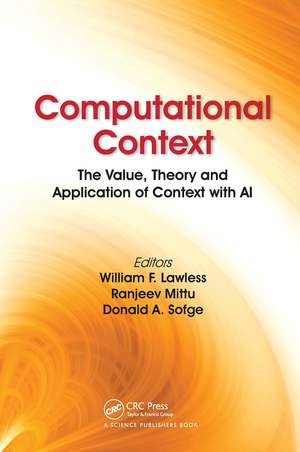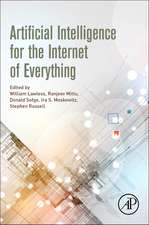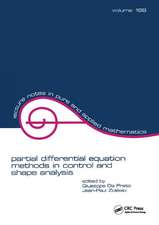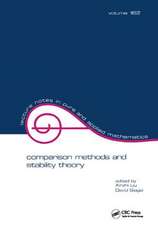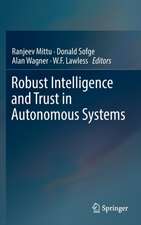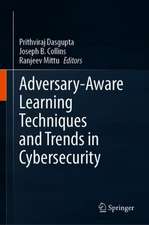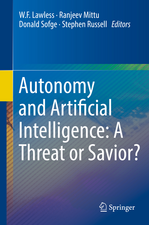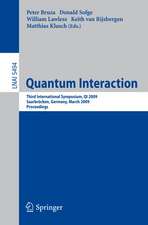Computational Context: The Value, Theory and Application of Context with AI
Autor William F. Lawless, Ranjeev Mittu, Donald Sofgeen Limba Engleză Paperback – 31 mar 2021
Context can be clear, uncertain or an illusion. Clear contexts: A father praising his child; a trip to the post office to buy stamps; a policewoman asking for identification. Uncertain contexts: A sneak attack; a surprise witness in a courtroom; a shout of "Fire! Fire!" Contexts as illusion: Humans fall prey to illusions that machines do not (Adelson’s checkerboard illusion versus a photometer). Determining context is not easy when disagreement exists, interpretations vary, or uncertainty reigns. Physicists like Einstein (relativity), Bekenstein (holographs) and Rovelli (universe) have written that reality is not what we commonly believe. Even outside of awareness, individuals act differently whether alone or in teams.
Can computational context with AI adapt to clear and uncertain contexts, to change over time, and to individuals, machines or robots as well as to teams? If a program automatically "knows" the context that improves performance or decisions, does it matter whether context is clear, uncertain or illusory? Written and edited by world class leaders from across the field of autonomous systems research, this volume carefully considers the computational systems being constructed to determine context for individual agents or teams, the challenges they face, and the advances they expect for the science of context.
| Toate formatele și edițiile | Preț | Express |
|---|---|---|
| Paperback (1) | 291.98 lei 6-8 săpt. | |
| CRC Press – 31 mar 2021 | 291.98 lei 6-8 săpt. | |
| Hardback (1) | 979.21 lei 6-8 săpt. | |
| CRC Press – 21 dec 2018 | 979.21 lei 6-8 săpt. |
Preț: 291.98 lei
Preț vechi: 417.00 lei
-30% Nou
Puncte Express: 438
Preț estimativ în valută:
55.88€ • 58.12$ • 46.83£
55.88€ • 58.12$ • 46.83£
Carte tipărită la comandă
Livrare economică 13-27 martie
Preluare comenzi: 021 569.72.76
Specificații
ISBN-13: 9780367780548
ISBN-10: 0367780542
Pagini: 328
Dimensiuni: 156 x 234 mm
Greutate: 0.72 kg
Ediția:1
Editura: CRC Press
Colecția CRC Press
Locul publicării:Boca Raton, United States
ISBN-10: 0367780542
Pagini: 328
Dimensiuni: 156 x 234 mm
Greutate: 0.72 kg
Ediția:1
Editura: CRC Press
Colecția CRC Press
Locul publicării:Boca Raton, United States
Cuprins
Introduction. Learning Context through Cognitive Priming. The Use of Contextual Knowledge in a Digital Society. Challenges with addressing the issue of context within AI and human-robot teaming. Machine Learning Approach for Task Generation in Uncertain Contexts. Creating and Maintaining a World Model for Automated Decision Making. Probabilistic Scene Parsing. Using Computational Context Models to Generate Robot Adaptive Interactions with Humans. Context-Driven Proactive Decision Support: Challenges and Applications. The Shared Story – Narrative Principles for Innovative Collaboration. Algebraic Modeling of the Causal Break and Representation of the Decision Process in Contextual Structures. A Contextual Decision-Making Framework. Cyber-(in)Security, context and theory: Proactive Cyber-Defenses.
Notă biografică
William Lawless, as an engineer, in 1983, Lawless blew the whistle on Department of Energy’s mismanagement of radioactive wastes. For his PhD, he studied the causes of mistakes by organizations with world-class scientists and engineers. Afterwards, DOE invited him onto its citizen advisory board at its Savannah River Site where he co-authored numerous recommendations on the site’s clean-up. In his research on mathematical metrics for teams, he has published two co-edited books on AI, and over 200 articles, book chapters and peer-reviewed proceedings. He has co-organized eight AAAI symposia at Stanford (e.g., in 2018: Artificial Intelligence for the Internet of Everything).
Ranjeev Mittu, is a Branch Head for the Information Management and Decision Architectures Branch within the Information Technology Division at the U.S. Naval Research Laboratory. He is the Section Head of Intelligent Decision Support Section which develops novel decision support systems through applying technologies from the AI, multi-agent systems and web services. He brings a strong background in transitioning R&D solutions to the operational community, demonstrated through his current sponsors including DARPA, OSD/NII, NSA, USTRANSCOM and ONR. He has authored 2 books, 5 book chapters, and numerous conference publications. He has an MS in Electrical Engineering from Johns Hopkins University.
Donald (Don) Sofgeis a Computer Scientist and Roboticist at the U.S. Naval Research Laboratory (NRL) with 30 years of experience in Artificial Intelligence and Control Systems R&D. He has served as PI/Co-PI on dozens of federally funded R&D programs and has authored/co-authored approximately 110 peer-reviewed publications, including several edited books, many journal articles, and several conference proceedings. Don leads the Distributed Autonomous Systems Group at NRL where he develops nature-inspired computing solutions to challenging problems in sensing, artificial intelligence, and control of autonomous robotic systems. His current research focuses on control of autonomous teams or swarms of robotic systems.
Ranjeev Mittu, is a Branch Head for the Information Management and Decision Architectures Branch within the Information Technology Division at the U.S. Naval Research Laboratory. He is the Section Head of Intelligent Decision Support Section which develops novel decision support systems through applying technologies from the AI, multi-agent systems and web services. He brings a strong background in transitioning R&D solutions to the operational community, demonstrated through his current sponsors including DARPA, OSD/NII, NSA, USTRANSCOM and ONR. He has authored 2 books, 5 book chapters, and numerous conference publications. He has an MS in Electrical Engineering from Johns Hopkins University.
Donald (Don) Sofgeis a Computer Scientist and Roboticist at the U.S. Naval Research Laboratory (NRL) with 30 years of experience in Artificial Intelligence and Control Systems R&D. He has served as PI/Co-PI on dozens of federally funded R&D programs and has authored/co-authored approximately 110 peer-reviewed publications, including several edited books, many journal articles, and several conference proceedings. Don leads the Distributed Autonomous Systems Group at NRL where he develops nature-inspired computing solutions to challenging problems in sensing, artificial intelligence, and control of autonomous robotic systems. His current research focuses on control of autonomous teams or swarms of robotic systems.
Descriere
Autonomous systems can manage uncertainty better than humans, but autonomous systems can also fail. Perturbations against a team may clarify context; e.g., a competition between teams. But modeling perturbations, especially between multiple autonomous hybrid human-machine-robot systems, is a challenges address in this book.
